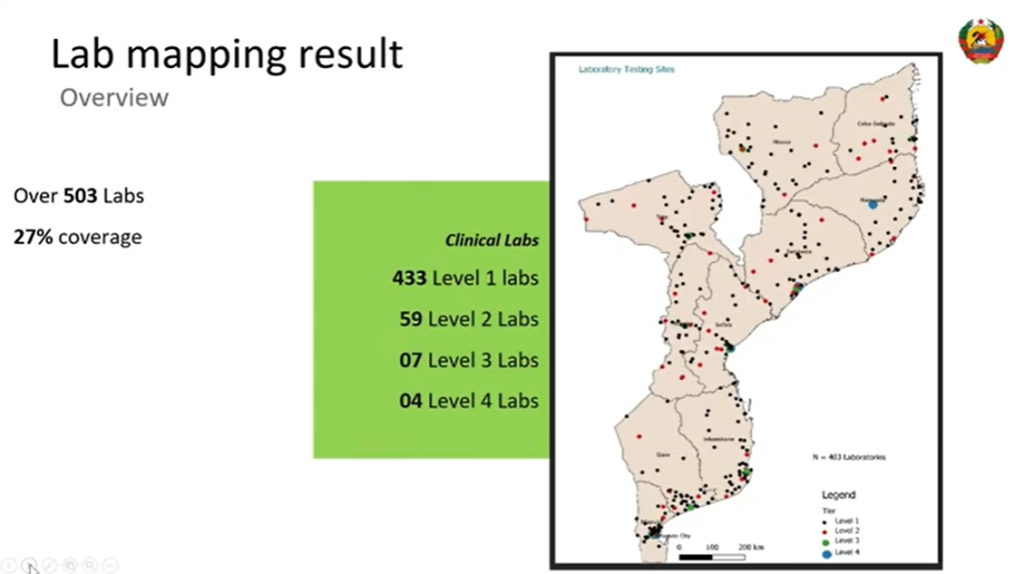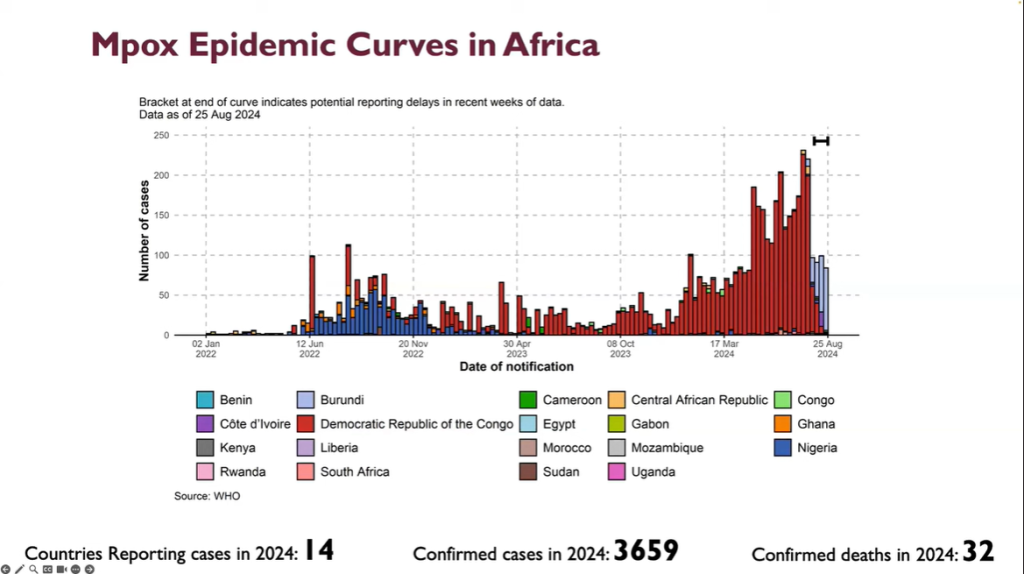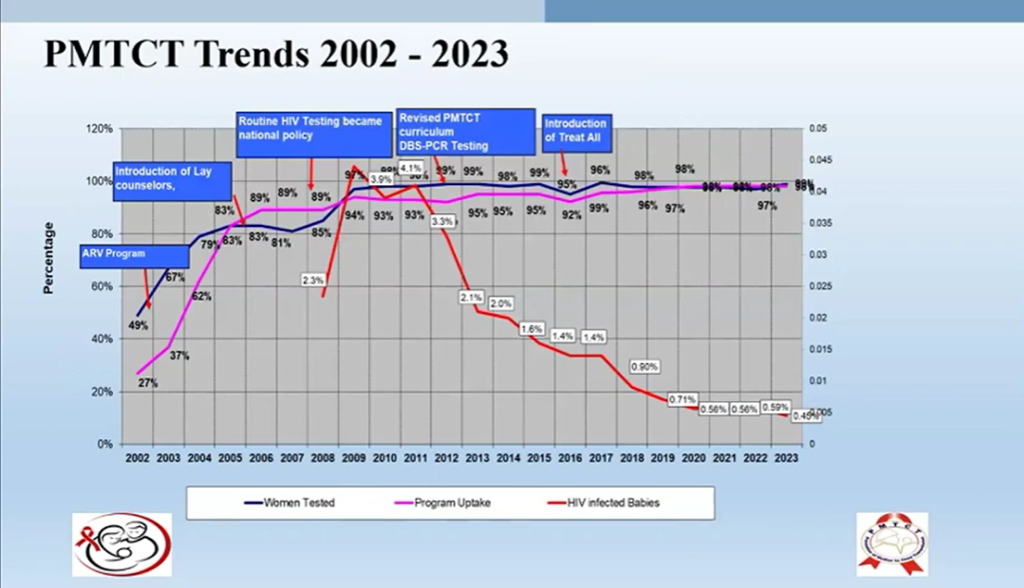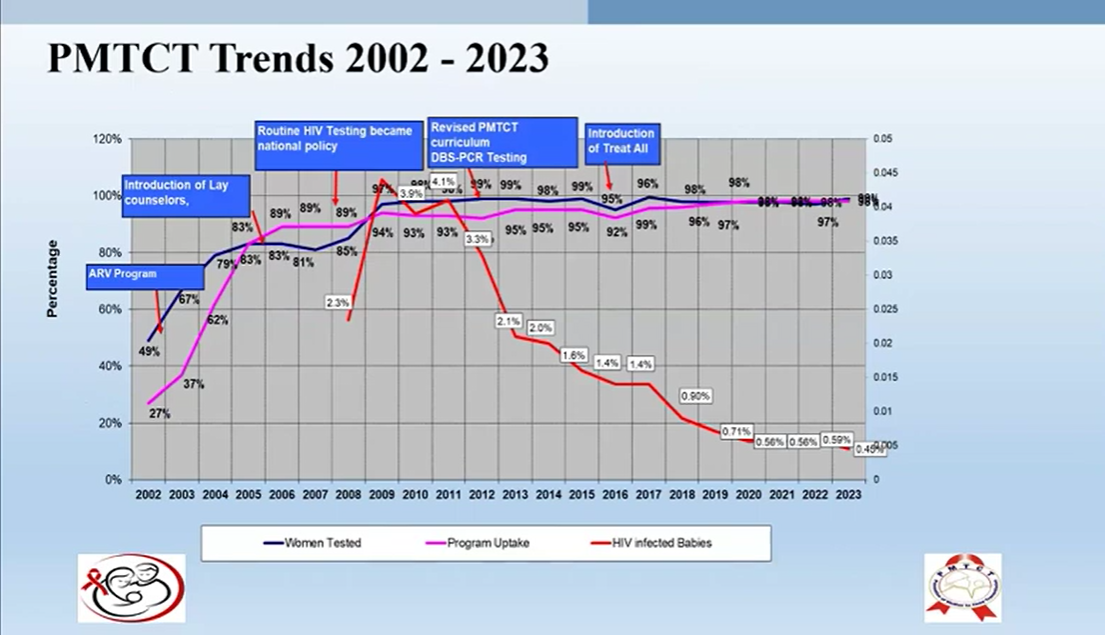Between August and December 2024, ASLM’s Laboratory System Strengthening Community of Practice (LabCoP) project, in collaboration with country teams, partners, and global agencies, convened eleven ECHO sessions. These sessions focused on critical topics such as health supply chain management, global guidelines, technical updates, diagnostic network optimization, data management, and early infant diagnosis.

A total of 3,949 individuals participated across the 11 sessions, with an average attendance of 395 per session. On average, participants spent 49 (±29) minutes in these typically one-hour sessions, with the majority joining from project-supported countries in Africa.
Health Supply Chain Management
ASLM in collaboration with USAID’s Global Health Supply Chain – Procurement and Supply Management (GHSC-PSM) project convened three ECHO sessions:
Unpacking Service-Level Agreements for Molecular-Based Testing, Boosting Lab Performance Through KPI-Driven Service-Level Agreements and Enhancing VL/EID Testing Efficiency with Vendor-Managed Inventory (VMI).
These sessions, led by the USAID Washington GH/OHA/SCH team, GHSC-PSM project representatives, and country teams from Nigeria and Zambia, explored tools and strategies to streamline laboratory supply chain management.
From all three sessions, it became apparent that multiple quantification, stock management, and performance management tools, initiatives, and strategies can be adapted/adopted by countries to ensure convenient, effective, and efficient supply chain management.

Diagnostic Network Optimization Sub-Community of Practice (DNO-SubCoP)
In September and October 2024, ASLM partnered with the Foundation for Innovative New Diagnostics (FIND) to deliver two ECHO sessions: GIS Laboratory Mapping: Lessons from Mozambique and Zimbabwe, and Leveraging Geospatial Analysis for Diagnostic Network Optimization.
Discussions from these sessions showcased GIS mapping applications, network optimization strategies, and real-world case studies, offering actionable insights for country programs looking to enhance diagnostic networks.
Furthermore, they highlighted specific DNO use cases drawing from Mozambique and Zimbabwe experiences and available tools with their specific utilities in conducting GIS mapping, network optimization, and downstream analyses. Country programs and networks can select appropriate tools and use cases for applications based on their specific needs and implementation environments.

Global Guidelines and Technical Updates
Three sessions focused on significant global updates. On August 8, a session focused on advancing Hepatitis Testing, WHO’s Latest Guidance & Rwanda’s Success Story. This session, in collaboration with Abbott Diagnostics, detailed WHO’s 2024 hepatitis testing guidelines and Rwanda’s implementation journey. Watch the session here. On August 29, LabCoP hosted a special session on tracking epidemiology trends and strengthening public health responses to the Mpox outbreak. Hosted by FIND, Africa CDC, and the Botswana–Harvard AIDS Institute Partnership, this session examined how Africa can leverage existing infrastructure for rapid outbreak responses. Watch the session here. The October ECHO session focused on maximizing the Potential of GeneXpert Systems.

It explored strategies for optimizing GeneXpert diagnostic platforms for increased efficiency and the best position to leverage existing capacity, retool and respond, drawing from the SARS-COV_2 lessons . Watch the session here.
Early Infant Diagnosis Sub-Community of Practice (EID-SubCoP)
Based on results from LabCoP country-level assessments and other complementary global reports, gaps in the progress toward achieving eMTCT and EID targets seem to be stagnating or widening in some cases. As a community of practice, LabCoP launched a new Sub-community of practice focusing on eMTCT and EID. In December 2024, the first session in this series was convened, focusing on the experience from Botswana in achieving elimination of Mother-to-Child transmission of HIV (eMTCT) and early infant diagnosis (EID) targets. In this session, Botswana shared their journey and innovations in achieving elimination and the evaluation process preceding their achievement of WHO silver tier. Watch the session here.

Spotlight Sessions
Two additional sessions provided valuable insights into laboratory data connectivity and private-sector engagement. This session on Transforming Data Connectivity introduced the SAVICS Academy which aims to transfer knowledge to local staff and ensure sustainable digital investments for adopting countries. Watch the session here. In September, an ECHO session was held to discuss the Nigeria’s Guild of Medical Laboratory Directors (GMLD. This Session focused on unifying the private sector laboratories to better support the national healthcare service delivery. Watch the session here.
These ECHO sessions served as a dynamic platform for knowledge sharing, equipping country teams with cutting-edge innovations, strategies, and best practices to strengthen laboratory systems across Africa.

